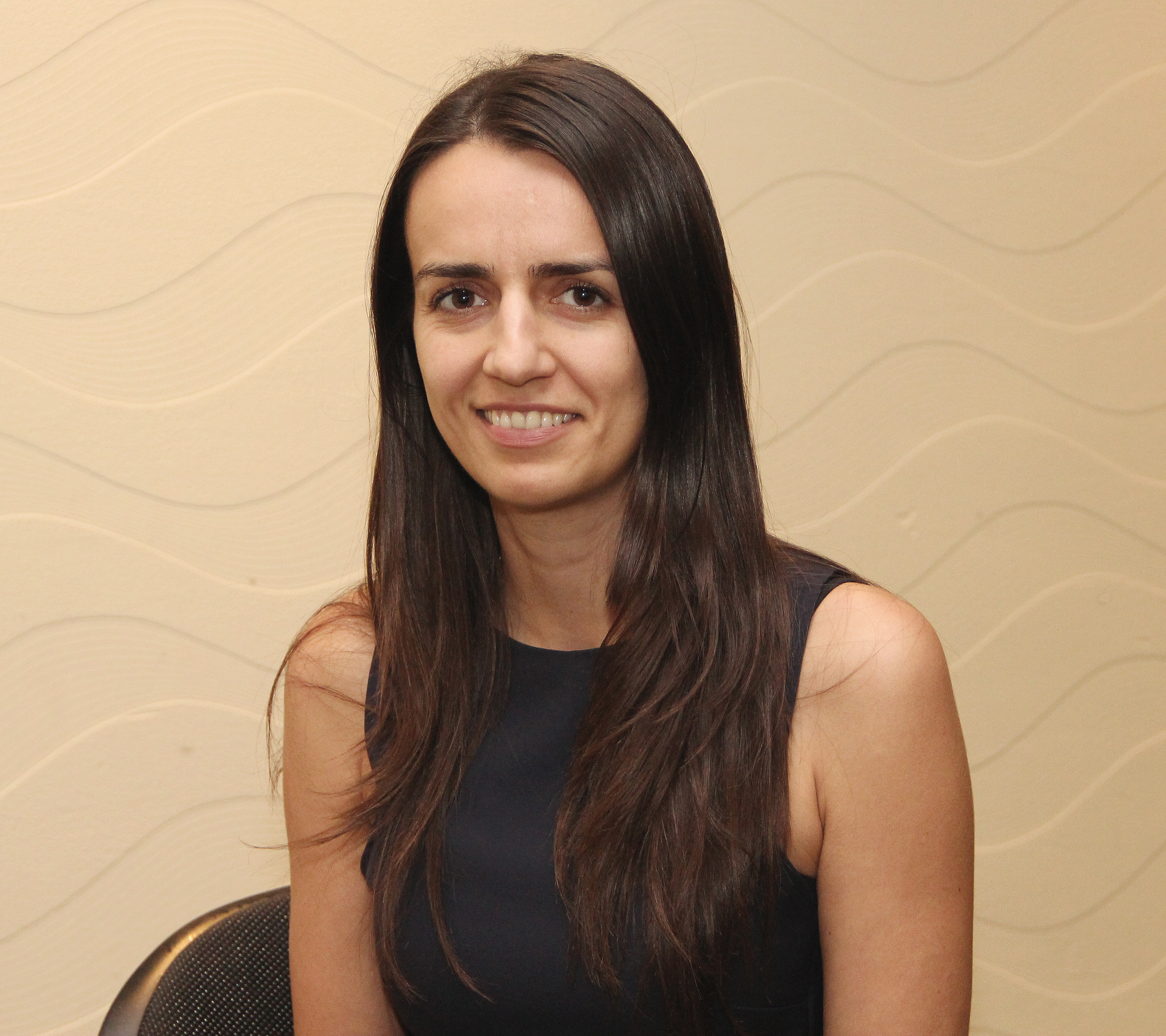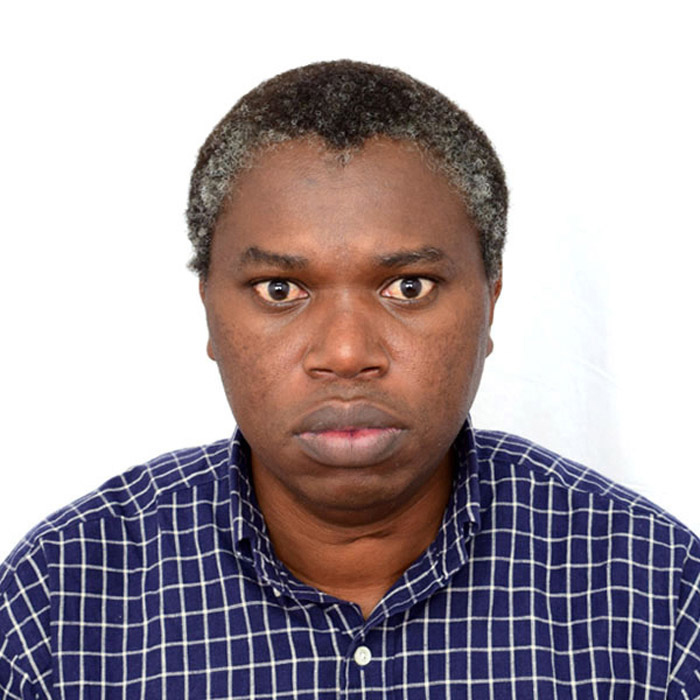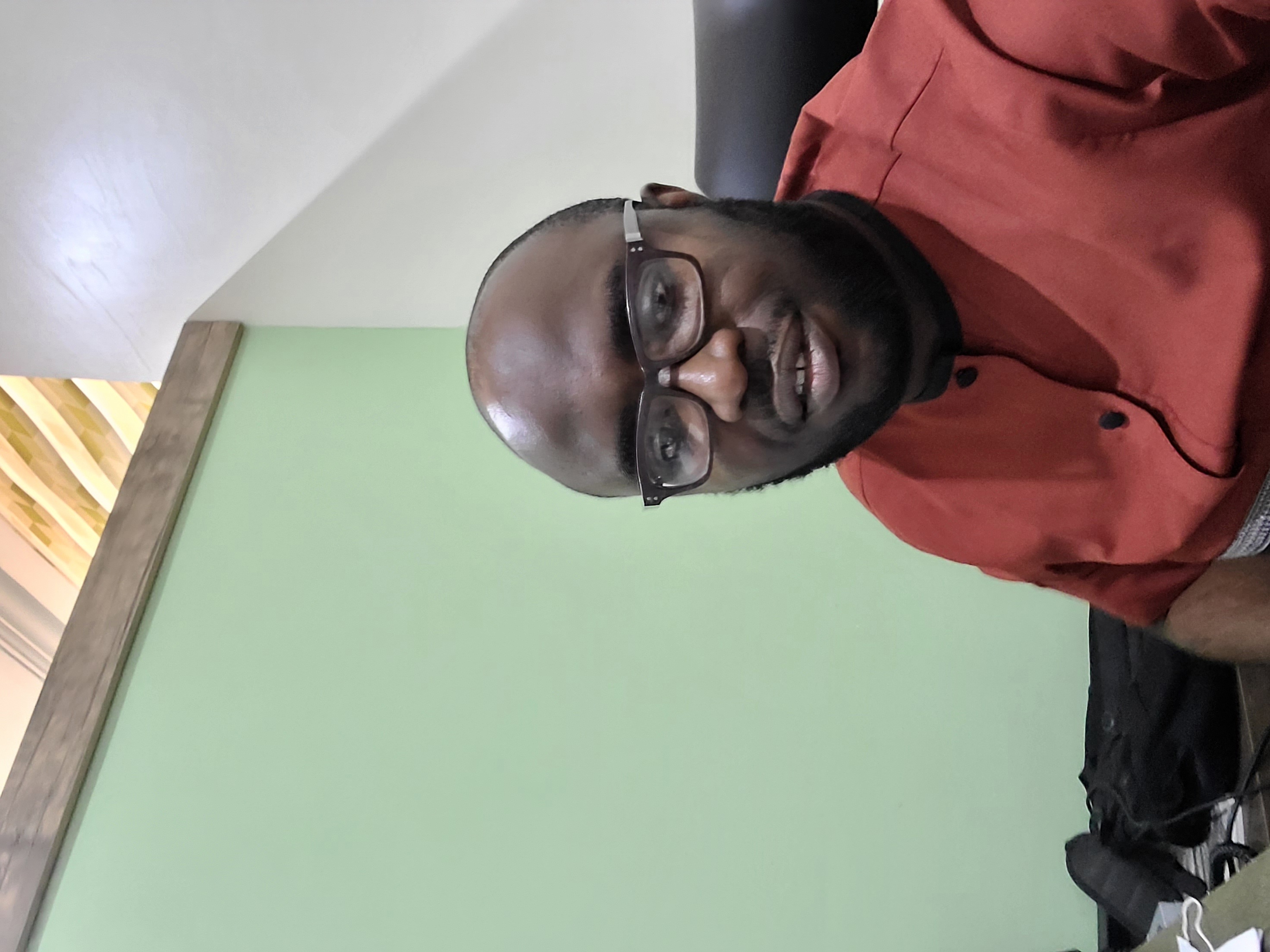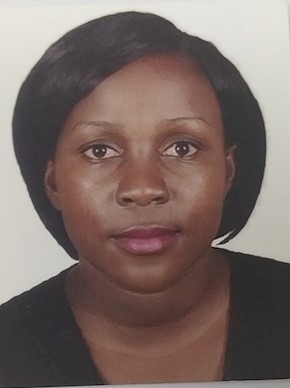

Dr
Aida Sivro
Current Organisation
CAPRISA/University of Manitoba
Current Job Title
Scientist
Biography
Publications
BACKGROUND: Aging of the immune system, known as immunosenescence, is associated with profound changes in both innate and adaptive immune responses, resulting in increased susceptibility to infection and a decreased ability to respond to vaccination. The purpose of this study was to investigate the effect of age and menopause on the expression of 22 different cytokines/chemokines in both plasma and cervical lavage samples from female sex-worker cohort from Nairobi, Kenya (age range 20-65).
RESULTS: Cytokine/chemokine levels were measured using a Miliplex multiplex assay (Millipore). We found that age positively correlated with MCP-1 (p = 0.0002) and IP-10 (p = 0.03) systemic cytokine expression, and that women over 50 expressed the highest levels of these cytokines, but also had elevated expression of MIG (ANOVA p = 0.0096) and MIP-3β(ANOVA p = 0.0434). We also found that IL-8 (p = 0.047) and sCD40L (p = 0.01) systemic expression negatively correlated with age. Further, MIG (p = 0.0081) and MCP-1 (p = 0.0157) were present at higher levels in post-menopausal women suggesting a potential estrogen dependant systemic regulation of these cytokines. In cervical lavage samples, age did not directly correlate with the expression of any of the tested cytokines/chemokines, however sIL-2Rα (ANOVA p = 0.0170) and IL-15 (ANOVA p = 0.0251)were significantly higher in women over 50. Menopause was shown to have a more profound effect on cytokine expression in the cervical mucosa with MIG (p = 0.0256), MIP-3α (p = 0.0245), IL-1β (p = 0.0261), IL-6 (p = 0.0462), IL-8 (p = 0.007), IP-10 (p = 0.0357) and MCP-1 (p = 0.0427) all significantly under-expressed in post-menopausal women.
CONCLUSIONS: This study demonstrates that aging and menopause-associated hormonal changes are associated with significant changes in systemic and mucosal cytokine/chemokine expression, which may have implications for the age-related decline in the ability to fight against infections.
INTRODUCTION: Interferon regulatory factor 1 (IRF1) is induced by HIV early in the infection process and serves two functions: transactivation of the HIV-1 genome and thus replication, and eliciting antiviral innate immune responses. We previously described three IRF1 polymorphisms that correlate with reduced IRF1 expression and reduced HIV susceptibility.
OBJECTIVE: To determine whether IRF1 polymorphisms previously associated with reduced HIV susceptibility play a role in HIV pathogenesis and disease progression in HIV-infected ART-naïve individuals.
METHODS: IRF1 genotyping for polymorphisms (619, MS and 6516) was performed by PCR in 847 HIV positive participants from a sex worker cohort in Nairobi, Kenya. Rates of CD4+ T cell decline and viral loads (VL) were analyzed using linear mixed models.
RESULTS: Three polymorphisms in the IRF1, located at 619, microsatellite region and 6516 of the gene, previously associated with decreased susceptibility to HIV infection show no effect on disease progression, either measured by HIV-1 RNA levels or the slopes of CD4 decline before treatment initiation.
CONCLUSION: Whereas these three polymorphisms in the IRF1 gene protect against HIV-1 acquisition, they appear to exert no discernable effects once infection is established.
Several clinical trials have demonstrated that antiretroviral (ARV) drugs taken as pre-exposure prophylaxis (PrEP) can prevent HIV infection, with the magnitude of protection ranging from -49 to 86% (refs. ). Although these divergent outcomes are thought to be due primarily to differences in product adherence, biological factors likely contribute. Despite selective recruitment of higher-risk participants for prevention trials, HIV risk is heterogeneous even within higher-risk groups. To determine whether this heterogeneity could influence patient outcomes following PrEP, we undertook a post hoc prospective analysis of results from the CAPRISA 004 trial for 1% tenofovir gel (n = 774 patients), one of the first trials to demonstrate protection against HIV infection. Concentrations of nine proinflammatory cytokines were measured in cervicovaginal lavages at >2,000 visits, and a graduated cytokine score was used to define genital inflammation. In women without genital inflammation, tenofovir was 57% protective against HIV (95% confidence interval (CI): 7-80%) but was 3% protective (95% CI: -104-54%) if genital inflammation was present. Among women who highly adhered to the gel, tenofovir protection was 75% (95% CI: 25-92%) in women without inflammation compared to -10% (95% CI: -184-57%) in women with inflammation. Immunological predictors of HIV risk may modify the effectiveness of tools for HIV prevention; reducing genital inflammation in women may augment HIV prevention efforts.
Interferons, induced early during viral infections, represent important regulators of both innate and adaptive immune responses, and provide protective effects against a wide range of pathogens, including HIV. Several in vitro studies and some in vivo data from HIV-exposed seronegative cohorts indicate that interferons and interferon-mediated immune responses are crucial in preventing early HIV replication. Following establishment of HIV infection, the uncontrolled (aberrant) activation of the immune system, in part regulated by interferon levels, contributes to HIV-1-induced immune activation and disease progression. Modulation of interferon responses prior to and during HIV infection shows promise for development of novel therapeutics to prevent HIV transmission, clear HIV infection, and dampen chronic immune activation. In this review we discuss the role that interferons play in protection from HIV infection, acute infection, and their role in HIV pathogenesis and disease progression. Lastly, we review recent advances in modulating interferon responses for purposes of developing novel HIV therapeutic approaches.
Members of the interferon regulatory factor (IRF) family control the expression of numerous proteins, many of which are central to regulating host immune responses. IRF1 is one of the central mediators of the innate and adaptive immune responses required for antigen processing and presentation, Th1/Th2 differentiation, and natural killer (NK) cell and macrophage function. Many viruses have evolved mechanisms to target the IRF1 pathway in order to promote viral pathogenesis. During early HIV infection, IRF1 acts as a double-edged sword, critical for driving viral replication as well as eliciting antiviral responses. In this review, we describe the strategies that HIV-1 has evolved to modulate IRF1 in order to enhance viral replication and to disarm the host immune system. IRF1 has been shown to be an important factor in natural protection against HIV in highly exposed seronegative (HESN) individuals and is crucial in regulating the initial stages of HIV replication and HIV disease progression, as well as the establishment of latency. An understanding of how the protective effects of IRF1 responses are controlled in HESN individuals, naturally resistant to HIV infection, may provide important clues on how to regain control of HIV and tip the balance of immunity in favor of the host, or provide new opportunities to eliminate HIV in its host altogether.
BACKGROUND: Immune correlates of tuberculosis (TB) risk in populations infected with human immunodeficiency virus (HIV) remain understudied, despite HIV being associated with a high burden of TB disease. Here we describe plasma cytokine correlates of TB recurrence in a well-characterized cohort of HIV-infected individuals on antiretroviral therapy (ART) with a history of prior TB cure.
METHODS: Study participants were drawn from a prospective cohort study initiated at the conclusion of a randomized clinical trial in which individuals presented with untreated HIV infection and active pulmonary TB. At baseline, ART was initiated, and TB successfully cured. Participants were screened for TB recurrence quarterly for up to 4 years. TB recurrent cases (n = 63) were matched to controls (n = 123) on sex, study arm assignment in the original trial, and month of enrollment with a subset of cases sampled longitudinally at several time-points.
RESULTS: Three cytokines were associated with increased rates of TB recurrence in univariate models: interleukin 6 (IL6) (odds ratio [OR] 2.66, 95% confidence interval [CI] 1.34-5.28, P = .005), IP10 (OR 4.62, 95% CI 1.69-12.65, P = .003), monokine induced by IFN-γ (MIG) (OR 3.11, 95% CI 1.10-8.82, P = .034). Conversely, interferon β (IFNβ) was associated with decreased TB risk (OR 0.34, 95% CI 0.13-0.87, P = .025). Following multivariate analyses adjusting for covariates IL6, interleukin 1β (IL1β), and interleukin 1Rα (IL1Rα) were associated with increased risk and IFNβ with decreased TB risk. Longitudinal analysis showed that levels of many TB-associated markers, including IL6, IP10, sCD14, and interferon γ (IFNγ) are reduced following TB treatment.
CONCLUSION: These data show that TB recurrence, in HIV-infected individuals on ART is predicted by biomarkers of systemic inflammation, many of which are implicated in more rapid HIV disease progression.
The gastrointestinal (GI) mucosa is central to HIV pathogenesis, and the integrin a4b7 promotes the homing of immune cells to this site, including those that serve as viral targets. Data from simian immunodeficiency virus (SIV) animal models suggest that a4b7 blockade provides prophylactic and therapeutic benefits. We show that pre-HIV infection frequencies of a4b7+ peripheral blood CD4+ T cells, independent of other T cell phenotypes and genital inflammation, were associated with increased rates of HIV acquisition in South African women. A similar acquisition effect was observed in a Kenyan cohort and in nonhuman primates (NHPs) after intravaginal SIV chal- lenge. This association was stronger when infection was caused by HIV strains containing V2 envelope motifs with a preference for a4b7 binding. In addition, pre-HIV a4b7+ CD4+ T cells predicted a higher set-point viral load and a greater than twofold increased rate of CD4+ T cell decline. These results were confirmed in SIV-infected NHPs. Increased frequencies of pre-HIV a4b7+ CD4+ T cells were also associated with higher postinfection expression of lipopolysaccharide binding protein, a microbial translocation marker, suggestive of more extensive gut damage. CD4+ T cells expressing a4b7 were rapidly depleted very early in HIV infection, particularly from the GI mucosa, and were not restored by early antiretroviral therapy. This study provides a link between a4b7 expression and HIV clinical outcomes in humans, in line with observations made in NHPs. Given the availability of a clinically approved anti-a4b7 monoclonal antibody for treatment of inflammatory bowel disease, these data support fur- ther evaluation of targeting a4b7 integrin as a clinical intervention during HIV infection.
Background: While non-optimal vaginal bacteria and inflammation have been associated with increased HIV risk, the upstream drivers of these phenotypes are poorly defined in young African women.
Setting: Mombasa, Kenya.
Methods: We characterized vaginal microbiome and cytokine profiles of sexually active young women aged 14-24 years (n=168) in three study groups: those engaging in formal sex work, in transactional sex, and non-sex workers. Vaginal secretions were collected via self-inserted SoftCup, and assayed for cytokines and vaginal microbiome via multiplex ELISA and 16S rRNA sequencing, respectively. Epidemiological data were captured using a validated questionnaire.
Results: The median age of participants was 20 (IQR: 18-22). Approximately two-thirds of young women (105/168) had vaginal microbial communities characterized by Gardnerella and/or Prevotella spp.-dominance; a further 29% (49/168) were predominantly Lactobacillus iners. Microbiome clustering explained a large proportion of cytokine variation (>50% by the first 2 principle components). Age was not associated with vaginal microbial profiles in bivariable or multivariable analyses. Women self-identifying as sex workers had increased alpha (intra-individual) diversity, independent of age, recent sexual activity, HIV and other STIs (beta = 0.47, 95% CI: 0.05 - 0.90, p = 0.03). Recent sex (number of partners or sex acts last week, time since last vaginal sex) correlated with increased alpha diversity, particularly in participants who were not involved in sex work.
Conclusion: Non-optimal vaginal microbiomes were common in young Kenyan women and associated with sex work and recent sexual activity, but independent of age. Restoring optimal vaginal microflora may represent a useful HIV prevention strategy.
Not all individuals exposed to HIV become infected. Understanding why these HIV-exposed seronegative individuals remain uninfected will help inform the development of preventative measures against HIV infection. Interferon regulatory factor-1 (IRF1) plays a critical role both in host antiviral immunity and in HIV-1 replication. This study examined IRF1 expression regulation in the ex vivo peripheral blood mononuclear cells of HIV-exposed seronegative commercial sex workers who can be epidemiologically defined as relatively resistant to HIV infection (HIV-R), versus HIV-uninfected, susceptible controls (HIV-S). Whereas HIV-susceptible individuals demonstrated a biphasic, prolonged increase in IRF1 expression after interferon-γ stimulation, HIV-R individuals demonstrated a robust, but transient response. We also found that the IRF1 promoter in HIV-R was primed by increased basal histone deacetylase-2 binding, independently of transcription regulators, STAT1 and nuclear factor-κB/p65, implicating an epigenetic silencing mechanism. Interestingly, the transitory IRF1 response in HIV-R was sufficient in comparable regulation of interleukin-12 and interleukin-4 expression compared with the HIV-susceptible controls. This is the first study characterizing IRF1 responsiveness in individuals who demonstrate altered susceptibility to HIV infection. These data suggest that transitory IRF1 responsiveness in HIV-R may be one of the key contributors to the altered susceptibility to HIV infection during the early stages of primary HIV infection.
Cells from women who are epidemiologically deemed resistant to HIV infection exhibit a 40-60% reduction in endogenous IRF-1 (interferon regulatory factor-1), an essential regulator of host antiviral immunity and the early HIV replication. This study examined the functional consequences of reducing endogenous IRF-1 on HIV-1 replication and immune response to HIV in natural HIV target cells. IRF-1 knockdown was achieved in ex vivo CD4(+) T cells and monocytes with siRNA. IRF-1 level was assessed using flow cytometry, prior to infection with HIV-Bal, HIV-IIIB, or HIV-VSV-G. Transactivation of HIV long terminal repeats was assessed by p24 secretion (ELISA) and Gag expression (reverse transcription-polymerase chain reaction (RT-PCR)). The expression of IRF-1-regulated antiviral genes was quantitated with RT-PCR. A modest 20-40% reduction in endogenous IRF-1 was achieved in >87% of ex vivo-derived peripheral CD4(+) T cells and monocytes, resulted in >90% reduction in the transactivation of the HIV-1 genes (Gag, p24) and, hence, HIV replication. Curiously, these HIV-resistant women demonstrated normal immune responses, nor an increased susceptibility to other infection. Similarly, modest IRF-1 knockdown had limited impact on the magnitude of HIV-1-elicited activation of IRF-1-regulated host immunologic genes but resulted in lessened duration of these responses. These data suggest that early expression of HIV-1 genes requires a higher IRF-1 level, compared to the host antiviral genes. Together, these provide one key mechanism underlying the natural resistance against HIV infection and further suggest that modest IRF-1 reduction could effectively limit productive HIV infection yet remain sufficient to activate a robust but transient immune response.
Burkholderia cenocepacia is a member of the Burkholderia cepacia complex, a group of metabolically versatile bacteria that have emerged as opportunistic pathogens in cystic fibrosis and immunocompromised patients. Previously a screen of transposon mutants in a rat pulmonary infection model identified an attenuated mutant with an insertion in paaE, a gene related to the phenylacetic acid (PA) catabolic pathway. In this study, we characterized gene clusters involved in the PA degradation pathway of B. cenocepacia K56-2 in relation to its pathogenicity in the Caenorhabditis elegans model of infection. We demonstrated that targeted-insertion mutagenesis of paaA and paaE, which encode part of the putative PA-coenzyme A (CoA) ring hydroxylation system, paaZ, coding for a putative ring opening enzyme, and paaF, encoding part of the putative beta-oxidation system, severely reduces growth on PA as a sole carbon source. paaA and paaE insertional mutants were attenuated for virulence, and expression of paaE in trans restored pathogenicity of the paaE mutant to wild-type levels. Interruption of paaZ and paaF slightly increased virulence. Using gene interference by ingested double-stranded RNA, we showed that the attenuated phenotype of the paaA and paaE mutants is dependent on a functional p38 mitogen-activated protein kinase pathway in C. elegans. Taken together, our results demonstrate that B. cenocepacia possesses a functional PA degradation pathway and that the putative PA-CoA ring hydroxylation system is required for full pathogenicity in C. elegans.
BACKGROUND: A blood-based assay that could quantify HIV susceptibility would be very valuable for HIV prevention research. Previously, we developed and validated an ex vivo, flow-based, HIV entry assay to assess genital HIV susceptibility in endocervical CD4+ T cells.
METHODS: Here we assessed whether this tool could be used to predict HIV risk using blood-derived CD4+ T cells in a rigorously-blinded, nested case-control study using blood samples collected from high-risk, HIV-uninfected South African women enrolled in the CAPRISA 004 clinical trial. Cases, subsequently acquiring HIV were sampled prior to HIV infection and compared with controls, who remained HIV-uninfected. The primary endpoint was ex vivo entry of a CCR5-tropic HIV founder virus into blood CD4+ T cells. Secondary endpoints included HIV entry into CD4+ central (TCM) and effector (TEM) memory T cells, and into CD4+ T cell subsets expressing CCR5, CD69, CCR6, α4β1 or α4β7.
RESULTS: Compared to bulk CD4+ T cells (4.9% virus entry), CD4+ T cells expressing CCR5, CCR6 or α4β1 and TEM were highly susceptible (15.5%, 8.8%, 8.2% and 10.8% entry, respectively, all p<0.0001), while TCM, CD69+ or α4β7+ CD4+ cells were moderately susceptible (6.4%, 6.0% and 5.8% respectively, p ≤ 0.003). While the proportion of the aforementioned highly susceptible cells correlated with overall virus entry into CD4+ T cells within an individual (r = 0.68, 0.47, 0.67, and 0.60 respectively, p<0.0001), blood virus entry did not predict subsequent mucosal HIV acquisition after controlling for sexual behaviour and condom use (OR 0.92, 95% CI 0.77-1.11, p = 0.40).
CONCLUSIONS: Although virus entry identified several previously known highly susceptible cellular HIV targets, blood HIV entry did not predict subsequent heterosexual HIV acquisition. Assessment of mucosal HIV susceptibility may require sampling at the site of HIV exposure.
Project Title
Mucosal type I IFN desensitization and the risk of HIV acquisition
EDCTP Project
TMA2016CDF1582
EDCTP Program
EDCTP2
EDCTP Project Call
Career Development Fellowship (CDF)
Host Organisation
| Department | Institution | Country |
|---|---|---|
| Centre for the Aids Programmes of Research in South Africa (CAPRISA) | ZA |
Project Objectives
Aim 1a. To establish longitudinal patterns of IFNa2 expression in the FRT, and correlate these patterns to epidemiological variables. Aim 1b. To correlate high/low IFN status defined in Aim 1a with IFN responsiveness in mucosal HIV target cells ex vivo. Aim 1c. To correlate high/low IFN status defined in Aim 1a with altered HIV susceptibility of mucosal target cells in vitro.
Study Design
NA
Project Summary
Type I IFNs represent a potent anti-viral immune mechanism, controlling a transcriptional program that renders cells less likely to support viral infection, and inducing immune responses that are effective in clearing viruses. As such, their activity must be tightly regulated and their effects mediated transiently, when needed during the innate response to viruses. Conversely, extended IFN stimulation, such as is induced during chronic viral infections, can lead to dysregulation of interferon pathways, impaired innate responsiveness, and increased viral susceptibility. This proposal aims to answer important questions regarding the role of antiviral interferon responses during HIV infection, characterizing both the causes and consequences of increased IFN production in the genital tract.


